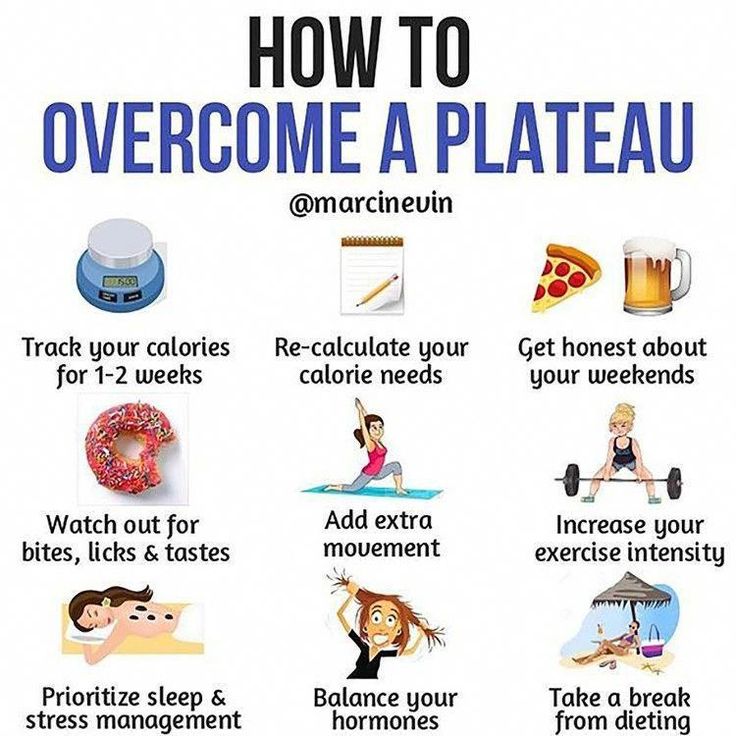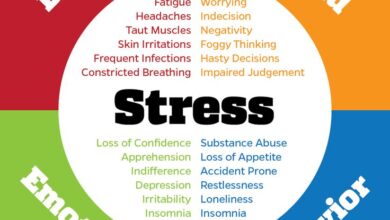
Ways to Motivate When Weight Loss Gets Tough
Ways to motivate when weight loss gets tough: It’s a journey, not a sprint. We’ve all been there – the initial excitement of a new diet and exercise plan fades, and the weight loss journey feels like an uphill battle.
But don’t despair! There are effective ways to rekindle that motivation and stay on track towards your goals. This post explores strategies that can help you overcome those tough moments and stay committed to a healthier, happier you.
This post will delve into a variety of strategies for staying motivated during your weight loss journey. We’ll explore the power of mindset shifts, the importance of setting realistic goals, and the benefits of finding joy in movement. We’ll also discuss the crucial role of support systems, the value of celebrating small victories, and how to navigate setbacks with resilience.
By the end, you’ll be equipped with a toolkit of practical tips to help you stay motivated and achieve lasting success.
Reframing Your Mindset

The journey to a healthier lifestyle is often paved with challenges. When weight loss becomes difficult, it’s easy to get discouraged and focus solely on the numbers on the scale. However, shifting your perspective from a weight-centric approach to a holistic focus on overall health and well-being can make a world of difference.
By embracing a positive and supportive self-talk approach, you can cultivate a mindset that fuels your motivation and empowers you to persevere through tough times.
Benefits of a Positive Mindset
Adopting a positive mindset can significantly impact your weight loss journey. It fosters self-compassion, reduces stress, and promotes healthier habits.
- Increased Motivation:When you focus on the positive aspects of your journey, you’re more likely to stay motivated and committed to your goals.
- Reduced Stress:Negative self-talk and self-criticism can lead to increased stress levels, which can sabotage your efforts.
- Improved Self-Esteem:Focusing on your strengths and celebrating your progress can boost your self-esteem and confidence.
Motivational Affirmations and Mantras
Affirmations are positive statements that can help reprogram your subconscious mind and challenge negative thoughts. Here are some examples of affirmations you can use to combat negative self-criticism:
“I am strong, capable, and worthy of my goals.”
“I am grateful for my body and the amazing things it can do.”
Sometimes, staying motivated during weight loss feels like an uphill battle, especially during the holidays. Navigating the onslaught of delicious treats and well-meaning (but sometimes pushy) family members can be tricky. Knowing how to respond to different types of food pushers can be a game changer, so check out this helpful article on types of food pushers during the holidays and how to respond.
Armed with these strategies, you can confidently navigate the holiday season while staying true to your weight loss goals.
“I am committed to making healthy choices that nourish my body and mind.”
“I am worthy of love, happiness, and success.”
Regularly repeating these affirmations can help shift your mindset and create a more positive internal dialogue.
Setting Realistic Goals
When it comes to weight loss, it’s easy to get caught up in the desire for quick results and set ambitious goals that are ultimately unsustainable. However, setting realistic and achievable goals is crucial for long-term success and maintaining motivation.
The Importance of Realistic Goals, Ways to motivate when weight loss gets tough
Setting realistic goals means aiming for a weight loss that is both achievable and sustainable in the long run. It’s about focusing on gradual progress rather than drastic changes that can be difficult to maintain.
- Sustainable Progress:Gradual weight loss is more likely to be sustainable and lead to long-term success.
- Improved Motivation:Achieving realistic goals provides a sense of accomplishment and boosts motivation to continue working towards your weight loss goals.
- Reduced Risk of Discouragement:Unrealistic goals can lead to discouragement and frustration when you don’t see immediate results.
The Dangers of Unrealistic Expectations
Setting unrealistic weight loss goals can have several negative consequences, impacting your motivation and overall well-being.
- Increased Risk of Discouragement:When you don’t meet unrealistic goals, it can lead to feelings of discouragement and frustration, making it harder to stay motivated.
- Unhealthy Behaviors:The pressure to achieve unrealistic goals can lead to unhealthy behaviors, such as restrictive diets or excessive exercise, which can be harmful to your health.
- Increased Risk of Yo-Yo Dieting:Unrealistic goals often lead to drastic weight loss followed by weight regain, known as yo-yo dieting, which can have negative health consequences.
SMART Goals for Weight Loss
SMART goals are a framework for setting goals that are Specific, Measurable, Achievable, Relevant, and Time-bound. This framework helps ensure your goals are well-defined and achievable.
Sometimes, the hardest part of weight loss isn’t the actual exercise, but finding the motivation to get started. If you’re struggling to get moving, why not try stepping up your walking game? Check out these 5 ways to step up your walking game this winter for some inspiration.
You might be surprised how much a simple walk can boost your mood and help you stay on track with your weight loss goals.
Examples of SMART Weight Loss Goals
- Specific:“I will lose 1-2 pounds per week.”
- Measurable:“I will track my food intake and exercise using a fitness tracker.”
- Achievable:“I will incorporate 30 minutes of moderate-intensity exercise into my daily routine.”
- Relevant:“My goal is to lose weight to improve my overall health and reduce my risk of chronic diseases.”
- Time-bound:“I will achieve my weight loss goal within six months.”
Remember, setting realistic goals is essential for achieving sustainable weight loss. Focus on making gradual, healthy changes that you can maintain over time.
Finding Joy in Movement: Ways To Motivate When Weight Loss Gets Tough
It’s easy to feel like exercise is a chore, especially when you’re trying to lose weight. But remember, movement is a gift! It’s an opportunity to strengthen your body, boost your mood, and feel more energized. To make exercise more enjoyable, it’s essential to find activities that align with your interests and make you feel good.
We all hit those weight loss plateaus where motivation dwindles. It’s easy to get stuck in a rut, but remember that variety is key! One way to spice things up is by trying out some fun home workout routines.
Check out these 8 fun ways to avoid home workout boredom for some inspiration. By keeping your workouts exciting, you’ll be more likely to stick with it and see those results you’re aiming for!
Incorporating Variety
Incorporating variety into your workout routine is key to preventing boredom and staying motivated. When you do the same exercises repeatedly, your body can adapt, leading to plateaus and a decrease in enjoyment. By mixing things up, you challenge your body in new ways, keep things interesting, and prevent boredom.
Examples of Fun and Engaging Physical Activities
Here are some fun and engaging physical activities that you can easily integrate into your daily life:
- Dance Classes:Dancing is a fantastic way to get your heart rate up, improve your coordination, and have a blast. There are countless dance styles to choose from, including Zumba, hip-hop, salsa, and ballroom. Find a class that suits your taste and skill level.
- Group Fitness Classes:Group fitness classes provide a motivating and social environment. From spin to yoga to bootcamp, there’s a class for everyone. The energy of the group and the guidance of the instructor can make even challenging workouts more enjoyable.
- Outdoor Activities:Take advantage of the great outdoors and engage in activities like hiking, biking, swimming, or kayaking. Not only are these activities great exercise, but they also offer a chance to connect with nature and clear your mind.
- Sports:Playing a sport is a fun and social way to get active. Join a recreational league or play with friends. Choose a sport that you enjoy and that fits your fitness level.
- Active Games:Turn everyday activities into opportunities for movement. Play frisbee in the park, have a game of tag with your kids, or go for a walk with a friend. These activities can make exercise feel less like a chore and more like fun.
Building a Supportive Network
The journey to weight loss can be challenging, and having a supportive network around you can make a significant difference in your success. Surround yourself with people who understand your goals, encourage your efforts, and celebrate your achievements.
The Importance of a Supportive Network
A supportive network provides a sense of accountability, motivation, and emotional support, all crucial for maintaining your commitment to weight loss. This network can consist of friends, family members, or even a weight loss community.
- Accountability:When you have people who are aware of your goals, you are more likely to stay on track. They can hold you accountable for your actions and help you stay focused on your objectives. For instance, if you’ve committed to exercising three times a week, your friends can remind you of your commitment and encourage you to stick to it.
- Motivation:Having a supportive network can provide a constant source of motivation. When you feel discouraged, they can offer words of encouragement, share their own experiences, and remind you of your progress.
- Emotional Support:Weight loss can be an emotional rollercoaster. You might experience setbacks, frustrations, and moments of self-doubt. A supportive network can provide a safe space for you to vent, express your feelings, and receive empathy and understanding.
Seeking Professional Support
In addition to a personal support network, seeking professional support can significantly contribute to your weight loss journey.
- Therapists:Therapists can help you address any underlying emotional issues that may be contributing to your weight struggles. They can provide tools and strategies for managing stress, improving body image, and building self-esteem.
- Nutritionists:Nutritionists can provide personalized dietary guidance, help you create a balanced meal plan, and educate you on healthy eating habits. They can also help you navigate the challenges of food cravings and emotional eating.
Creating a Positive and Encouraging Environment
Creating a positive and encouraging environment can significantly impact your weight loss journey.
- Focus on Progress, Not Perfection:Celebrate your successes, no matter how small. Instead of focusing on setbacks, acknowledge your progress and use it as motivation to keep moving forward.
- Practice Self-Compassion:Be kind to yourself. It’s okay to make mistakes. Instead of criticizing yourself, learn from your experiences and move on.
- Surround Yourself with Positivity:Spend time with people who uplift you and encourage your goals. Avoid those who may be critical or discouraging.
- Visual Reminders:Use visual reminders to keep you motivated. For example, you can post inspiring quotes on your refrigerator, set motivational wallpapers on your phone, or create a vision board of your weight loss goals.
Cultivating Patience and Persistence

Weight loss is a marathon, not a sprint. It requires dedication, effort, and most importantly, patience and persistence. While it’s tempting to focus solely on the end goal, the journey itself is crucial.
Embracing the Journey Mindset
Focusing solely on the end goal can lead to discouragement and frustration when progress seems slow. Instead, embrace a journey mindset. Appreciate the small victories along the way, celebrate your commitment, and enjoy the process of becoming a healthier version of yourself.
Inspirational Stories of Success
Many individuals have successfully overcome weight loss challenges, demonstrating the power of patience and persistence.
“I lost 100 pounds over three years, and it wasn’t easy. There were setbacks, plateaus, and times when I wanted to give up. But I kept going, one day at a time, and eventually reached my goal. It wasn’t just about the weight loss, it was about the journey and the person I became along the way.”
Sarah, a successful weight loss journeyer.
This story highlights the importance of embracing the journey and celebrating the milestones, no matter how small.
Ending Remarks
Remember, the weight loss journey is a marathon, not a sprint. There will be ups and downs, moments of frustration, and setbacks along the way. But by focusing on a positive mindset, setting achievable goals, and embracing the journey, you can overcome those challenges and reach your full potential.
Stay true to your goals, celebrate your progress, and never give up on your dreams of a healthier, happier you.






